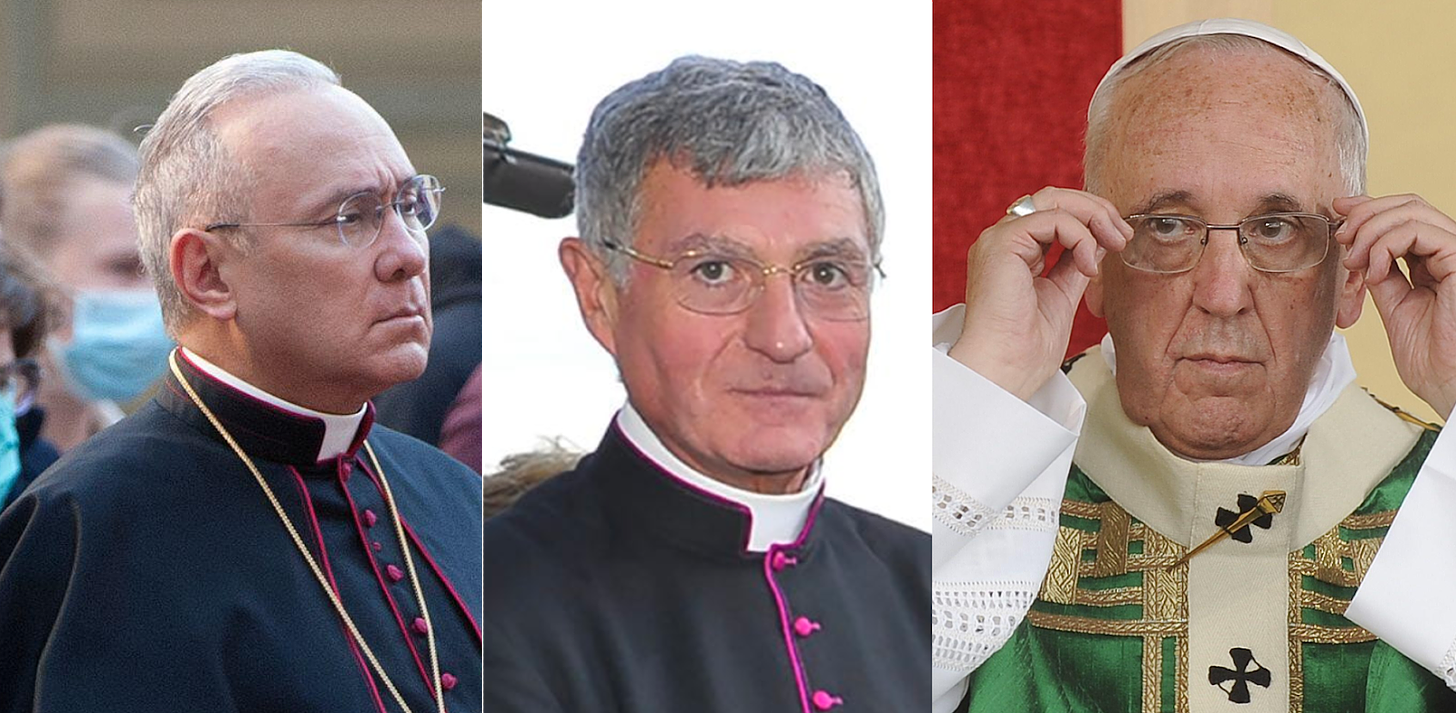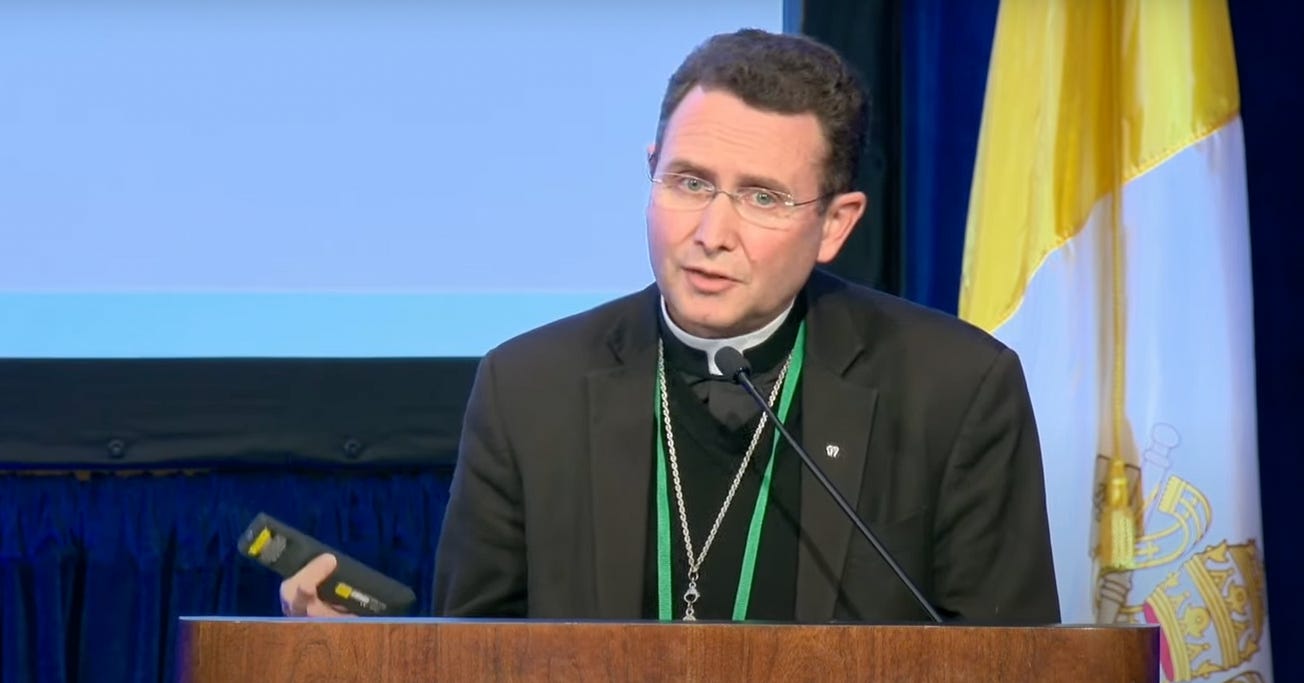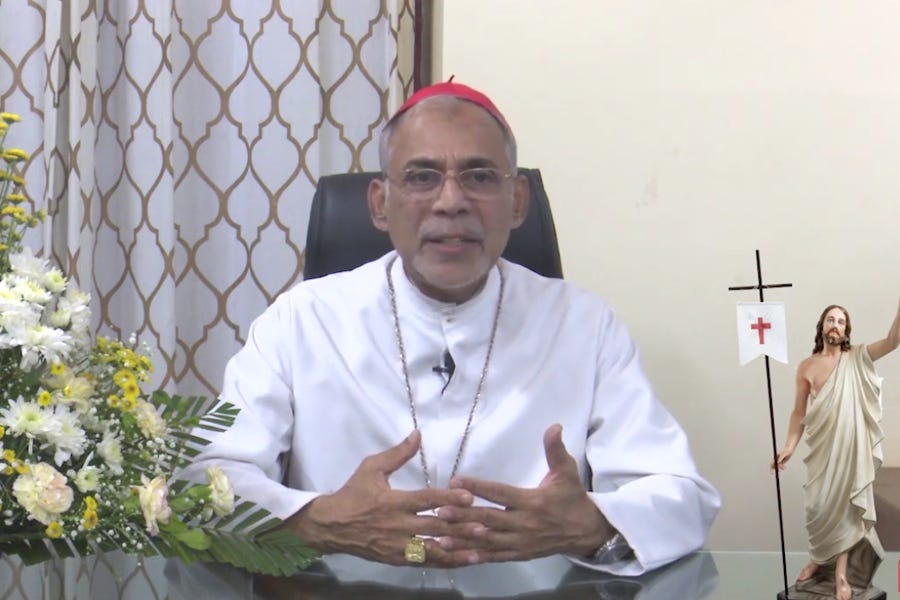A Vatican City courtroom heard Tuesday another day of evidence from defendants in the trial of the Secretariat of State’s financial scandal. And, for the second session in a row, much of the testimony focused on the conduct and activity of senior secretariat officials who aren’t themselves on trial.
And as the trial continues, prosecutors might soon be asked why they didn't indict additional Vatican leaders, who have emerged as key links in a suspect chain of events — among them Archbishop Edgar Peña Parra, who is de facto papal chief of staff.

During a hearing held April 5, the former head of the Vatican’s Financial Information Authority told judges that he was powerless to intervene when the Vatican got involved in the now-famous London property deal which led to its alleged extortion.
Despite his reservations, René Brülhart said it was clear to him that a Vatican decision to pay off alleged extortionist Gianluigi Torzi, instead of taking legal action against him, was made by the secretariat’s sostituto, Archbishop Peña Parra.
According to Brülhart, Peña Parra made it clear in an April 16 meeting that he was committed to completing the deal “under any circumstances.”
The sostituto separately made it clear to the pope that he considered going to the authorities and taking legal action against Torzi to pose an unacceptable risk of “reputational damage” and would have “given publicity to the whole operation.” Paying off an alleged extortionist was, apparently, preferable.
When Pope Francis authorized an investigation into the London property deal in July 2019, he granted investigators a very wide latitude to look into financial misconduct at the Secretariat of State, leading to the charging of three former officials at the department, including Peña Parra’s immediate predecessor, Cardinal Angelo Becciu, and the secretary who served them both in office, Msgr. Mauro Carlino.
Becciu served as sostituto for seven years, from 2011 until June of 2018, when he was promoted to cardinal and prefect of the Congregation for the Causes of Saints.
As sostituto, Becciu was responsible for canceling a curia-wide audit to be carried out by the firm PriceWaterhouseCooper, and for forcing the resignation of the Vatican’s first auditor general, Libero Milone. And he still faces questions (and charges) in court over his employment of a “personal spy,” Cecelia Marogna, who has claimed she worked for Becciu to gather dossiers on the private moral failing of senior curial figures.
But, of all the allegations and scandals which have been laid at Becciu’s door, including that it was under him that the secretariat became enmeshed with the London building’s original owner, Raffaele Mincione, he cannot be blamed for the fiasco of the deal’s conclusion — which was negotiated and settled after he left the department.
Those decisions rested principally, at least according to the documents available in court filings in London and Rome, with Peña Parra and the prosecution’s chief witness, Msgr Alberto Perlasca, neither of whom are facing charges.
Given the otherwise broad net cast by prosecutors in their indictment, and the emerging evidence in court, these two omissions from the charge sheet appear ever more inexplicable.
Despite being an authorizing signature on many of the secretariat’s more questionable business deals, including with Torzi and Marogna, Perlasca is not himself accused of any crime. While it is possible prosecutors have effectively granted him immunity from prosecution in exchange for his cooperation as a witness, this has not been officially stated or confirmed.
And it is difficult to parse the reasoning behind charging Brülhart but not Peña Parra, over the London deal.
The prosecution contends that, as head of the AIF, Brülhart should have intervened to stop the London deal going through, rife as it apparently was with red flags.
The Swiss lawyer contends that his department had no legal authority to intervene in the secretariat’s affairs, which is true. Though he still faces real questions about his possible conflict of interest, given he was simultaneously being paid to advise the secretariat and run the AIF, which does oversee the IOR, the Vatican bank pressured by the secretariat to finance the London deal at the same time Brülhart was apparently advising against the deal.
But it is not at all clear why Brülhart’s inaction to stop the deal leaves him open to criminal prosecution, but Peña Parra’s decisive action to force the deal through “under any circumstances” does not see him facing similar charges.
Indeed, the archbishop’s reported, and now confirmed in court, ordering of an investigation into the IOR’s director general, Gianfranco Mammi, in apparent retaliation for the banker refusing a 150 million euro loan and lodging a complaint about the deal, would appear to be on a par with many of the actions alleged against his predecessor, Cardinal Becciu. As would his apparently “imaginative” invoicing, flagged by the IOR, to pay for the contracting of Italian intelligence officers to handle “investigations” for the secretariat.
During the two-year criminal investigation which led to the current trial, speculation in the curia often turned to how high up the official food chain prosecutors would be allowed to go when bringing charges.
Many were surprised that a figure as senior as Becciu was included in the indictment and would be forced to stand trial in open court, following previous presumptions that lower-level officials would be left to take responsibility for any alleged criminal behavior.
But, as more and more information now emerges about Peña Parra’s resistance to flagging suspect behavior as it crossed his desk, and even ignoring explicit warnings about it, it seems likely that many will now ask if the difference between being a “current” or “former” sostituto marks the line beyond which prosecutors cannot go.
Of course, along with those questions will come renewed discussion of the role of Pope Francis.
Since the opening of the Vatican investigation in July 2019, the pope has shown himself willing to clear a path for prosecutors to pursue their case — authorizing search warrants and waiving state secrecy when necessary. But a common refrain among many of those interviewed by investigators, and increasingly now by the judges, too, has been that Francis “knew” everything about what they were doing and gave his tacit approval.
Given Peña Parra’s own statements about officials in his department securing approval for their actions by blind-siding superiors with partial information and claims of immediate urgency, there is the potential for a real gulf between what the pope was told and what he was allowed to understand about dealings with figures like Torzi.
In waiving the pontifical secret to allow Becciu to face questions about his own actions as sostituto, Francis may have already signaled his impatience with officials trying to hide behind him to avoid tough questions.
How far the prosecutors go in serving justice in the Vatican may increasingly be seen to hinge on how willing Francis is to expose instances where he may have been misled by those closest to him.
That, as Peña Parra might note, could bring “publicity to the whole operation," and risk “unpredictable reputational damage.”




